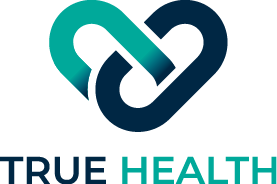How Does Acupuncture Work?
Acupuncture has been practised for thousands of years as part of Traditional Chinese Medicine (TCM) and continues to be widely used today as a complementary therapy. But how does it actually work?
Acupuncture is based on the idea that the body, mind, and emotions are interconnected and that health issues arise when this delicate balance is disrupted. Using fine, sterile needles, acupuncture aims to restore harmony and support the body’s natural healing mechanisms.
The Concept of Qi and Energy Flow
In TCM theory, the body is believed to function through the flow of Qi (pronounced “chee”), often translated as “vital energy” or “lifeforce.” Qi moves through meridians, or energy pathways, supporting the function of organs, tissues, and emotions.
When Qi becomes stagnant, weak, or blocked, it is thought to contribute to pain, illness, or emotional distress. Acupuncture aims to stimulate specific points along these meridians, helping to:
- Encourage circulation and relieve stagnation.
- Reduce tension and inflammation.
- Support immune and nervous system function.
- Promote physical and emotional balance.
The Modern Scientific Perspective
From a Western medical standpoint, acupuncture is believed to influence the body’s nervous system, circulation, and pain response mechanisms. Research suggests acupuncture may work by:
- Stimulating the release of endorphins, the body’s natural pain-relieving chemicals (Mayo Clinic, 2021)
- Regulating neurotransmitters, such as serotonin and dopamine, which can influence mood and stress levels (Better Health Channel, 2022)
- Improving blood circulation, delivering oxygen and nutrients to tissues to support healing
- Modulating the autonomic nervous system, encouraging relaxation, and reducing stress responses
Studies have shown that acupuncture may be beneficial for a range of conditions, including chronic pain, migraines, stress, digestive issues, and sleep disturbances.
What Happens During an Acupuncture Session?
At True Health, every acupuncture session begins with a detailed consultation to assess a patient’s condition and overall well-being. Treatments may include:
- Acupuncture: Fine needles are gently inserted into specific points to promote healing
- Electroacupuncture: Mild electrical stimulation is applied to enhance effects.
- Herbal medicine and lifestyle recommendations: Tailored advice to support long-term wellness.
Many patients report a sense of deep relaxation during and after treatment, with progressive improvements over multiple sessions.
The Takeaway
Acupuncture is not magic. It is a structured and holistic approach that works by supporting the body’s natural ability to heal. Whether through balancing Qi in TCM or stimulating physiological responses from a modern medical perspective, acupuncture may offer a gentle, effective way to manage various health concerns.
If you’re curious about how acupuncture could benefit you, our team at True Health is here to help.


